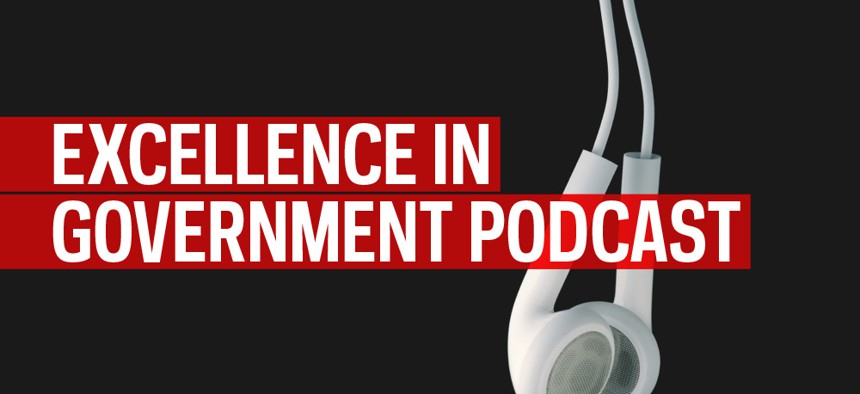
Why Data Sharing Is the Future of Government
Communication across all levels of government will be key to effective operations and services.
Listen to the story:
Download this episode | Subscribe on iTunes
Hurricanes Katrina and Sandy were only seven years apart, but the emergency response made it seem like the storms were centuries apart. The response to Katrina in 2005 was somewhere between a mess and a punch line, while images of the Sandy response in 2012 were far more positive.
As Government Executive Media Group correspondent Joseph Marks writes in the most recent issue of Government Executive, an increased emphasis on the sharing of data and responsibilities is the reason the Sandy response was so much more effective than that of Katrina. Data sharing makes such a recovery “look less like individual efforts from an alphabet soup of agencies and more like a unified response,” Adrian Gardner, chief information officer at the Federal Emergency Management Agency, said in an interview with Marks.
Hurdles to sharing still remain, Marks noted in a recent Excellence in Government podcast interview, but groups and agencies are pushing for more data sharing to help citizens and government operations. Data sharing is especially effective between different levels of government, he added, noting that data sharing initiatives are helping state, local, federal and tribal governments work together to accomplish the collective mission. The processing of documentation for traveling abroad, for example, could be streamlined easily through more data sharing between levels of government.
"Most of the information that the State Department needs when it issues you a passport is actually collected at the state and local levels . . . but that information isn't being shared, so you have to go through the whole process again," Marks explained. "Perhaps there is some information about you that the local government knows that the State Department would like to know when they issue a passport. But they don't have access to that."
Whenever these type of initiatives are proposed, cost is an issue, Marks said, but the actual cost isn't a point of contention as much as the sharing of the cost. And those organizational challenges demand a fair amount of direction from above, he added.
"If you run an agency and you run another, there are going to be some savings from that, but maybe you're saving more than I am and I'm putting in more than you are," Marks said. "It really takes a top-down mandate and a bottom-up realization of how this can lift all boats for it to be clear that this can be cost-effective for both agencies.
In the 21st century, data sharing is imperative to effective government. And it's not going away anytime soon, as the Smart Lean Government group can attest. Marks said these planners are pushing to find out where data sharing is headed and how to utilize it best.
"They are doing the forward-thinking of 10 to 20 years down the road," he added. "And one thing they often say is 'a lot of the information that is collected by one level government is very useful to other levels of government."
NEXT STORY: Adopting Best Practices Can Be a Bad Idea







